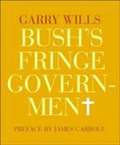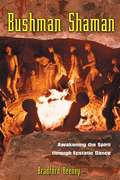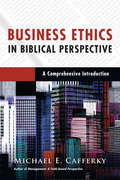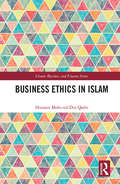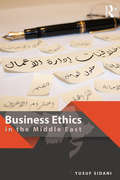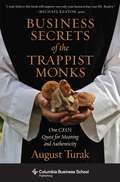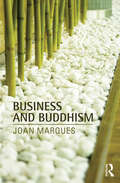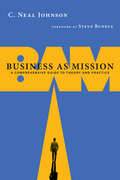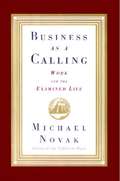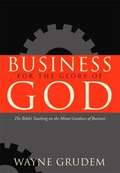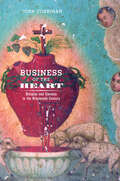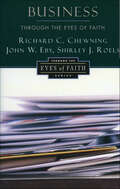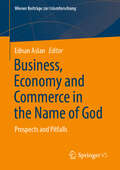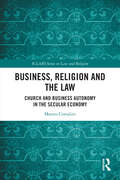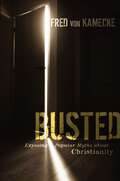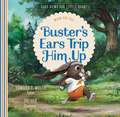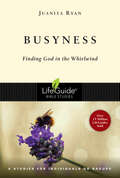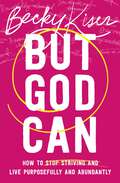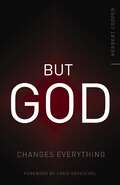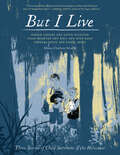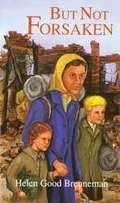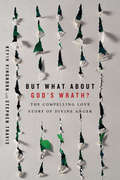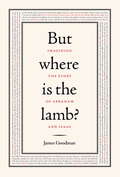- Table View
- List View
Bush's Fringe Government
by Garry WillsOne of America's foremost historians looks at the state of American democracy and the influence of the Catholic Church. How is it possible for minorities to rule majorities? An answer can be found by looking at both George Bush's Republican Party and the Catholic Church. Bush's Fringe Government is an inquiry into how an extremely conservative fringe in these organizations, although in the minority, have a disproportionate influence on a broad range of issues, and use their influence to govern the majority. By exploring the ways in which the election of Pope Benedict XVI has increased the influence of very conservative Catholics in the Vatican, Garry Wills offers a lucid and striking explanation of the political coalition between Catholics and evangelicals - a partnership that has been instrumental in electing Republicans in the United States and keeping conservative issues in the forefront of American political discourse. As Wills puts it, "How do you govern an apostate nation? When the entire culture is corrupted, the country can only be morally governed in spite of itself. A collection of aggrieved minorities must seize the levers of power in every way possible. One must govern not from a broad consensual center but from activist fringes of morality." Juxtaposing Karl Rove and the Bush administration's political strategy to that of conservatives in the Catholic Church, Wills' examination of extremist fringe elements is a major piece of political analysis by one of our most highly regarded commentators. Its timely publication is essential reading for the 2006 elections in the United States.
Bushman Shaman: Awakening the Spirit through Ecstatic Dance
by Bradford KeeneyThe author’s journey to becoming a Bushman shaman and healer and how this tradition relates to shamanic practices around the world• Explores the Bushmen’s ecstatic shaking and dancing practices• Written by the first non-Bushman to become fully initiated into their healing and spiritual waysIn Bushman Shaman, Bradford Keeney details his initiation into the shamanic tradition of the Kalahari Bushmen, regarded by some scholars as the oldest living culture on earth. Keeney sought out the Bushmen while in South Africa as a visiting professor of psychotherapy. He had known of the Kalahari “trance dance,” wherein the dancers’ bodies shake uncontrollably as part of the healing ceremony. Keeney was drawn to this tradition in the hope that it might explain and provide a forum for his own ecstatic “shaking,” which he had first experienced at the age of 19 and had tried to suppress and hide throughout his adult life.For more than a dozen years Keeney danced with Bushmen shamans in communities throughout Botswana and Namibia, until finally becoming fully initiated into their doctoring and spiritual ways. Through his rediscovery of the “rope to God” in a Bushman shaman dream, he offers readers accounts of his shamanic world travels and the secrets of the soul he learned along the way. In Bushman Shaman Keeney also reveals his work with shamans from Japan, Tibet, Bali, Thailand, Australia, and North and South America, providing new understandings of other forms of shamanic spiritual expression and integrating the practices of all these traditions into a sacred circle of one truth.
Business Ethics in Biblical Perspective: A Comprehensive Introduction
by Michael E. CafferkyIt is legal for CEOs to make 300 times the amount of the average worker. But is this fair and just? Is it ethical for a customer to purchase a digital camera for the sole purpose of using it on a ski trip and then return the item to the store afterwards? Should companies who purchase advertising space on websites that offer pirated videos for download be held accountable for breaking intellectual property laws? The world of business is fraught with ethical challenges. Some of these are relatively straightforward, but others are complicated and require careful reflection. While there are numerous theories to help people navigate these dilemmas, the goal of this book is to provide a comprehensive biblical perspective on contemporary issues in areas such as consumer behavior, management, accounting and marketing. In Business Ethics in Biblical Perspective, Michael E. Cafferky explores the biblical resources for moral guidance and ethical consideration. He identifies twelve key themes in the narrative of Scripture: cosmic conflict, creation, holiness, covenant relationships, shalom, sabbath, justice, righteousness, truth, wisdom, loving kindness and redemption. By looking at ethical approaches and issues through this multifaceted biblical perspective, Cafferky helps readers appreciate the complex nature of ethical decision making, particularly in the context of business and finance. Designed from the start with the classroom in mind, each chapter of Business Ethics in Biblical Perspective provides example scenarios, questions for intrapersonal and interpersonal ethical reflection, review questions, ethical vignettes for discussion and an exploration of the chapter material in light of the biblical themes. Additional IVP Instructor Resources are also available.
Business Ethics in Islam (Islamic Business and Finance Series)
by Hussain Mohi-ud-Din QadriIslamic Business Finance is based on strong ethical regulations as suggested by Islamic Literature, such as the Quran and the Traditions of the Prophet of Islam, and could be considered as a subclass of the wider subject of ethical standards in business. This book highlights the basic principles of Islamic Business ethics and their implication in today’s global business environment. It highlights the most important features of Islamic banking and finance in relation to the core principles of Shariah law. It is the most comprehensive book to date, in terms of the number of Quranic verses and traditions of the Prophet relating to this subject, which are interspersed throughout the text. It explains how ethics are defined both in general terms and within the context of an Islamic perspective. In addition, it provides a logical interpretation of Islamic principles of business ethics, while keeping in view thethrough the use of contemporary business practices. Topics such as digital currencies, money laundering, etc. are discussed at length. This book also discusses the new and emerging ethical issues faced by business and industry globally. This book will be a valuable reference guide for students, teachers and researchers of Islamic banking and finance.
Business Ethics in the Middle East
by Yusuf SidaniBusiness Ethics in the Middle East fills a crucial gap in the Middle East educational landscape. Written in an easy and accessible format, this book covers the foundations of business ethics by drawing from both Eastern and Western traditions. The chapters include many examples, case studies, activities, and illustrations that are customized to the Middle Eastern market, yet relevant to readers outside of the Middle East who want thorough insights about business behaviour in the region. A special module introduces the Arab Middle Eastern context that non-Arab readers will find valuable. The author addresses topics related to organizational culture, leadership, CSR, corporate governance, marketing, HR, accounting, finance, and production. This is accomplished with a deep attention to the cultural and contextual elements of the Middle East. Special attention is given to religious business ethics, while still deeply engaging the vast heritage of Western ethical systems. This combination is essential for the development of a comprehensive approach to the topic of business ethics. This textbook will be essential reading for students of business ethics in the Middle East and will also be valuable for students and researchers across business ethics, Islamic Studies, religion, and philosophy.
Business Secrets of the Trappist Monks: One CEO's Quest for Meaning and Authenticity (Columbia Business School Publishing)
by August TurakAugust Turak is a successful entrepreneur, corporate executive, and award-winning author who attributes much of his success to living and working alongside the Trappist monks of Mepkin Abbey for seventeen years. As a frequent monastic guest, he learned firsthand from the monks as they grew an incredibly successful portfolio of businesses.Service and selflessness are at the heart of the 1,500-year-old monastic tradition's remarkable business success. It is an ancient though immensely relevant economic model that preserves what is positive and productive about capitalism while transcending its ethical limitations and internal contradictions. Combining vivid case studies from his thirty-year business career with intimate portraits of the monks at work, Turak shows how Trappist principles can be successfully applied to a variety of secular business settings and to our personal lives as well. He demonstrates that monks and people like Warren Buffett are wildly successful not despite their high principles but because of them. Turak also introduces other "transformational organizations" that share the crucial monastic business strategies so critical for success.
Business and Buddhism
by Joan MarquesBusiness and Buddhism explores alternative ways of leading in the aftermath of the Great Recession and the many stories of fraud and greed that emerged. The book explores shifts in business perspectives as more value is placed on soft skills like emotional intelligence and listening, and introduces the reader to the principles in Buddhist philosophy that can be applied in the workplace. Buddhist practices are increasingly understood as spiritual, rather than religious per se. In fact, Buddhism is alternately referred to as a philosophy or psychology. In this book, Marques explores the value of applying the positive psychology of Buddhism to work settings. She outlines the ways in which it offers highly effective solutions to addressing important management and organizational behavior related issues, but also flags up critical areas for caution. For example, Buddhism is non-confrontational, and promotes detachment. How can business leaders negotiate these principles in light of the demands of modern day pressures? The book includes end of chapter questions to promote reflection and critical thinking, and examples of Buddhist leaders in action. It will prove a captivating read for students of organizational behavior, management, leadership, diversity and ethics, as well as business consultants.
Business as Mission: A Comprehensive Guide to Theory and Practice
by C. Neal JohnsonBusiness as mission (BAM) is a mission strategy whose time has come. As global economics become increasingly interconnected, Christian business people and entrepreneurs have unanticipated opportunities to build kingdom-strategic business ventures. But Christian companies and business leaders do not automatically accomplish missional purposes. BAM requires mastery of both the world of business and the world of missions, merging and contextualizing both into something significantly different than either alone. C. Neal Johnson offers the first comprehensive guide to business as mission for practitioners. He provides conceptual foundations for understanding BAM's unique place in global mission and prerequisites for engaging in it. Then he offers practical resources for how to do BAM, including strategic planning and step-by-step operational implementation. Drawing on a wide variety of BAM models, Johnson works through details of both mission and business realities, with an eye to such issues as management, sustainability and accountability. Business as mission is a movement with enormous potential. This book breaks new ground in how faith and work intersect and are lived out in crosscultural contexts, where job creation and community transformation go hand in hand. Come, participate in what may well be one of the most strategic mission paradigms of the 21st century.
Business as a Calling: Work and the Examined Life
by Michael NovakThis book is a spiritual feast, for everyone who wants to examine how to make a life through making a living.
Business for the Glory of God: The Bible's Teaching on the Moral Goodness of Business
by Wayne GrudemCan business activity in itself be morally good and pleasing to God? Sometimes business can seem so shady-manipulating the "bottom line," deceiving the consumer, or gaining promotions because of whom you know. But Wayne Grudem introduces a novel concept: business itself glorifies God when it is conducted in a way that imitates God's character and creation. He shows that all aspects of business, including ownership, profit, money, competition, and borrowing and lending, glorify God because they are reflective of God's nature. Though Grudem isn't naÏve about the easy ways these activities can be perverted and used as a means to sin, he knows that Christians can be about the business of business. This biblically based book is a thoughtful guide to imitating God during interactions with customers, coworkers, employees, and other businesses. See how your business, and your life in business, can be dedicated to God's glory. "A thoughtful review of the purpose and meaning of business and a fresh way to look at honoring and glorifying God in doing business. " -C. William Pollard Chairman Emeritus, The ServiceMaster Company"Helpful, easy-to-understand grounding for business leadership. " -James Fellowes CEO, Fellowes, Inc. "What remarkable insight!" -Stephen Happel, Ph. D. Professor of Economics, Arizona State University"What a great reminder that your business life can be a critical part of how you serve God and impact lives for eternity!" -Dave Browneformer CEO, LensCrafters; current CEO, Family Christian Stores
Business of the Heart: Religion and Emotion in the Nineteenth Century
by John CorriganThe "Businessmen's Revival" was a religious revival that unfolded in the wake of the 1857 market crash among white, middle-class Protestants. Delving into the religious history of Boston in the 1850s, John Corrigan gives an imaginative and wide-ranging interpretive study of the revival's significance. He uses it as a focal point for addressing a spectacular range of phenomena in American culture: the ecclesiastical and business history of Boston; gender roles and family life; the history of the theater and public spectacle; education; boyculture; and, especially, ideas about emotion during this period.This vividly written narrative recovers the emotional experiences of individuals from a wide array of little-used sources including diaries, correspondence, public records, and other materials. From these sources, Corrigan discovers that for these Protestants, the expression of emotion was a matter of transactions. They saw emotion as a commodity, and conceptualized relations between people, and between individuals and God, as transactions of emotion governed by contract. Religion became a business relation with God, with prayer as its legal tender. Entering this relationship, they were conducting the "business of the heart." This innovative study shows that the revival--with its commodification of emotional experience--became an occasion for white Protestants to underscore differences between themselves and others. The display of emotion was a primary indicator of membership in the Protestant majority, as much as language, skin color, or dress style. As Corrigan unravels the significance of these culturally constructed standards for emotional life, his book makes an important contribution to recent efforts to explore the links between religion and emotion, and is an important new chapter in the history of religion.
Business through the Eyes of Faith (Through the Eyes of Faith)
by Richard C. Chewning John W. Eby Shirley J. RoelsIs capitalism Christian? Is there a Christian perspective on business? How should a Christian use power in the workplace? In addressing such difficult questions as these, Business Through the Eyes of Faith demonstrates how God can dwell at the center of one's life even in the secular marketplace.Here is pragmatic affirmation of the role that committed Christians can play in the business world. The authors stress the connections between Christian principles and good management and provide biblical passages that support their principles and relate them to the practical issues faced by Christian managers. Issues such as employee motivation, workplace communication, business leadership, the role of profit, and social responsibility are all addressed in concrete terms and reinforced by short vignettes, suggested biblical passages to explore, and commentaries from contemporary theorists and practitioners.Business Through the Eyes of Faith shows that business can and should be a reflection of God's kingdom. It is an invaluable resource for Christian business students, managers, and those who wish to understand the concerns and motives of Christians in the business world.
Business, Economy and Commerce in the Name of God: Prospects and Pitfalls (Wiener Beiträge zur Islamforschung)
by Ednan AslanThroughout history, religious communities have left an indelible mark on society's spiritual life, moral compass, and economic landscape. To fulfill their divine mission, these communities need resources to carry out their religious and God-centered activities. Economic engagement has always been and remains an integral part of their worship. In an increasingly globalized world, where the professional marketing of religion is on the rise, these communities face growing pressure to present their beliefs and values in a polished, professional manner. This is critical to maintaining or even expanding their influence in a global world. As a result, religious communities today often operate like businesses, engaging in diverse sectors of the economy ranging from pilgrimages and the halal market to the fashion industry. This book explores the complex relationship between business and religion. It provides a historical overview, examines contemporary examples, and offers a nuanced analysis of the risks and opportunities involved. It also explores the theological implications of doing business in the name of God.
Business, Religion and the Law: Church and Business Autonomy in The Secular Economy (ICLARS Series on Law and Religion)
by Matteo CorsaliniThis book investigates the intersection between business and religion from a legal perspective. Taking a fresh look at some of the most compelling literature in law and religion, it proposes a rethinking of what scholars on both sides of the Atlantic have dubbed “church autonomy” or, more recently, “corporate religious freedom”. <p><p> The volume explores how, in the wake of a decade of US Supreme Court case law, corporate religious freedom is now increasingly being extended to protect the religious liberty of another corporate entity: the for-profit corporation. By exposing this shift from church to business autonomy in American law, it is argued that a similar narrative has also begun to take place in Europe. Through a comparative and interdisciplinary approach to corporate religious freedom, the work provides the reader with a new, comprehensive, and easily accessible history of the genesis and evolution of this legal category in American and European law. The book combines material that straddles international law and religion, corporate law, and economic theory. The diversity of views contained within it makes it a valuable resource for scholars and students in law and religion, corporate social responsibility, and law and economics.
Busted! (Left Behind. The Kids, #7)
by Tim Lahaye Jerry B. Jenkinsfrom Nicolae High, Vicki and Judd attempt escape. A friend's betrayal puts Vicki on trial. With Old Testament prophecies coming true before their eyes, the Young Trib Force struggles to spread the truth no matter what the cost. But the noose is tightening. Will the group stick together? Who is the insider at the school helping them? Follow Judd, Vicki, Lionel, and Ryan and the growing Young Trib Force as they continue their perilous journey through the earth's last days.
Busted: Exposing Popular Myths about Christianity
by Fred Von KameckePeople say a lot of things about the Bible, God, Jesus, and Christianity that are simply not true. So in the style of the popular cable show Mythbusters, a New Testament scholar uses biblical and historical evidence-and humor-to do a little myth busting of his own.
Buster's Ears Trip Him Up: When You Fail (Good News for Little Hearts)
by Edward T. WelchBuster was sure he was the fastest bunny in the meadow. But during a race at summer camp, nothing goes as planned and Buster gets tripped up. After his epic fall, his older sister, Ivy, helps him see that failure is an opportunity to grow. As Buster remembers God's love, he is able to let go of others opinions and accept that it is okay to try your best but not always be the best. Edited by Edward T. Welch, Buster's Ears Trip Him Up ends with a special section that guides parents in teaching children how the gospel of Jesus Christ comforts and sustains us through failure and turns our focus away from ourselves and toward others.
Busyness: Finding God in the Whirlwind (LifeGuide Bible Studies)
by Juanita Ryan"How have you been?" a friend asks. "Busy," we say. Much of our busyness is necessary to our survival or to the wellbeing of others and ourselves. In the whirlwind of our lives, however, it may seem impossible to focus beyond the noise of daily demands. We long for a greater awareness of God with us. This eight-session LifeGuide Bible Study explores ways of conversing with God in the midst of things, so we can see our day's work as the joyful service of kneeling before Jesus. For over three decades LifeGuide Bible Studies have provided solid biblical content and raised thought-provoking questions—making for a one-of-a-kind Bible study experience for individuals and groups. This series has more than 130 titles on Old and New Testament books, character studies, and topical studies.
But God Can: How to Stop Striving and Live Purposefully and Abundantly
by Becky KiserTired of trying to be enough? The truth is you were never meant to be, no matter what culture might tell you.Christian women today are bombarded with confusing messaging–they are supposed to do and be it all but also die to themselves. They are supposed to believe that women can do anything and also surrender everything to God. Adding to that pressure, many women feel stuck in their current reality–spinning on the hamster wheel of life. They scroll past images that tell them everyone else has it together and is experiencing a purpose-filled, adventurous, fun, loving, and God-honoring life. Overwhelmed and at a loss, most women go one of two places: defeat or self-help empowerment, even Christian self-help.In Becky Kiser's But God Can, women realize this truth: on their own, she was never meant to be enough—that is the gospel message, that is why Jesus came. But God Can get her unstuck and find a purpose she has never known! She will identify the lies she's internalized, replace those with new truths, and find freedom through realistic, practical, and life-changing strategies.Becky Kiser will use her foundation as a Bible teacher and unique skills as a life coach to take women on a journey tofind freedom from lies as she changes how she thinks,identify what God says is actually true,remember that God is more than capable of doing anything,discover how He has uniquely created her, andpropel her into the abundant life of deep purpose. But God Can will show you that you don't have to be enough because God is more than enough! On your own, you can't, but God totally can!
But God: Changes Everything
by Craig Groeschel Herbert CooperHerbert Cooper was headed down a very different road, living a reckless lifestyle that would have destroyed him in the end, but God had a different plan. He heard the gospel at a Fellowship of Christian Athletes meeting, at which he wasn’t even supposed to be, and he gave his life to Christ. Two words changed Cooper’s life: But God. These two words can change every single person’s life— But God. Each word is only three letters long. The phrase is short, but the implications are huge. The path may look bleak, dim, and hopeless…but GOD changes everything… We’ve all sinned - whether it is sex outside of marriage, a bitter heart, alcohol or drug abuse, cheating, or lying. Maybe you’re at a place in your life where it just feels like things are falling apart. Perhaps you’re portraying one thing on the outside and living something else on the inside. Maybe you are simply going through the motions of a life that’s not quite what you hoped it would be. These moments drag us down - leaving us feeling hopeless and lost. You need something to happen in your life to change. You need a But God… moment. The But God moments are when God comes in and offers a new path and hope for our lives. These moments occur when we are at are lowest, and turn our down-trodden worlds around for the better. It is up to us to recognize and seize these moments when they occur and follow the renewed path God offers.
But I Live: Three Stories of Child Survivors of the Holocaust
by Miriam Libicki Gilad Seliktar Barbara YelinAn intimate co-creation of three graphic novelists and four Holocaust survivors, But I Live consists of three illustrated stories based on the experiences of each survivor during and after the Holocaust. David Schaffer and his family survived in Romania due to their refusal to obey Nazi collaborators. In the Netherlands, brothers Nico and Rolf Kamp were separated from their parents and hidden by the Dutch resistance in thirteen different places. Through the story of Emmie Arbel, a child survivor of the Ravensbrück and Bergen-Belsen concentration camps, we see the lifelong trauma inflicted by the Holocaust. To complement these hauntingly beautiful and unforgettable visual stories, But I Live includes historical essays, an illustrated postscript from the artists, and personal words from each of the survivors. As we urgently approach the post-witness era without living survivors of the Holocaust, these illustrated stories act as a physical embodiment of memory and help to create a new archive for future readers. By turning these testimonies into graphic novels, But I Live aims to teach new generations about racism, antisemitism, human rights, and social justice.
But Not Forsaken
by Helen Good BrennemanFrom the book: IT WAS IN THE YEARS 1947-48 that my husband and I had the privilege of serving the Mennonite Central Committee refugee camp in Gronau, Germany. The camp, which began as a small emergency measure, grew in size to a large, bustling community and emigration center, usually housing 700 or 800 people, sometimes bulging its walls to accommodate as many as 2,000 homeless transitees. Should anyone endeavor to collect all the stories which these brethren-in-need brought with them from their homeland and their long, arduous trek, the collection would fill many volumes with fascinating tales of pathos and adventure. The family which arrived intact, mother, father, and all the children together, was rare indeed. Every individual had a history of hardships and severe trials, and each person living in camp had his own moments of fear and anxiety over the past, present, and future. Yet despite all the difficulties of a refugee existence, God had not forgotten His people nor had His people forgotten Him. From the debris of shattered hopes and dreams rose a monumental faith in God that amazed those of us who had never experienced such unfortunate circumstances. At times we witnessed answers to prayer which were nothing short of modern-day miracles and which strengthened our own faith.
But What About God's Wrath?: The Compelling Love Story of Divine Anger
by Kevin KinghornHow can a loving God also be a God of wrath?canjustlovingBut What About God's Wrath?
But Where is the Lamb?
by James Goodman"I didn't think he'd do it. I really didn't think he would. I thought he'd say, whoa, hold on, wait a minute. We made a deal, remember, the land, the blessing, the nation, the descendants as numerous as the sands on the shore and the stars in the sky." So begins James Goodman's original and urgent encounter with one of the most compelling and resonant stories ever told--God's command to Abraham to sacrifice his son Isaac. A mere nineteen lines in the book of Genesis, it rests at the heart of the history, literature, theology, and sacred rituals of Judaism, Christianity, and Islam. For more than two millennia, people throughout the world have grappled with the troubling questions about sacrifice, authority, obedience, and faith to which the story gives rise. Writing from the vantage of "a reader, a son, a Jew, a father, a skeptic, a historian, a lover of stories, and a writer," Goodman gives us an enthralling narrative history that moves from its biblical origins to its place in the cultures and faiths of our time. He introduces us to the commentary of Second Temple sages, rabbis and priests of the late antiquity, and early Islamic exegetes (some of whom imagined that Ishmael was the nearly sacrificed son). He examines Syriac hymns (in which Sarah stars), Hebrew chronicles of the First Crusade (in which Isaac often dies), and medieval English mystery plays. He looks at the art of Europe's golden age, the philosophy of Kant and Kierkegaard, and the panoply of twentieth-century interpretation, sacred and profane, including the work of Bob Dylan, Elie Wiesel, and A. B. Yehoshua. In illuminating how so many others have understood this story, Goodman tells a gripping and provocative story of his own.
But With the Dawn, Rejoicing
by Mary Ellen KellyIn the 1930's, little could be done for people who had rheumatoid arthritis, and many of them became completely bedridden! Mary Ellen is one of those people. With humor and compassion, yet without hiding her frustrations and disappointments, Mary Ellen Kelly writes of her adjustment to disability, her faith journey, and her ability to serve God and enjoy life. This is an eloquent, delightful and inspiring book.
